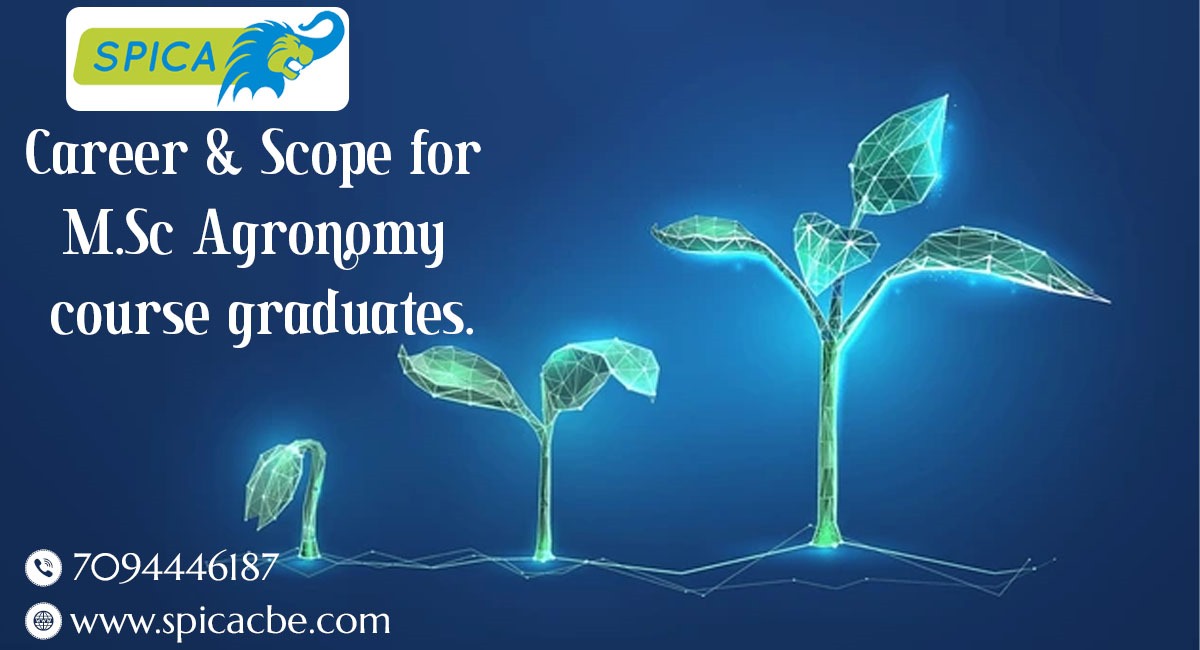
Graduates of the M.Sc Agronomy program have diverse and promising career paths due to their specialized knowledge and skills in crop production and management. Here’s a breakdown of the potential career options and their scope after M.Sc Agronomy program:
Research and Development:
Agricultural Research Scientist: Conduct research in government institutions, universities, or private companies on topics like crop improvement, soil fertility management, sustainable agriculture practices, and climate change adaptation.
Plant Breeder: Develop new and improved crop varieties with higher yields, disease resistance, and better adaptation to specific environments.
Soil Scientist: Investigate soil properties, analyze soil health, and develop strategies for improving soil fertility and sustainable land management.
Extension and Consultancy:
Agricultural Extension Officer: Work with farmers and rural communities to disseminate agricultural knowledge, best practices, and new technologies.
Agronomist/Crop Consultant: Provide farmers with personalized advice on crop selection, planting, fertilization, irrigation, pest management, and overall farm management.
Soil Consultant: Analyze soil samples, identify soil issues, and recommend corrective measures for improving soil health and productivity.
Industry and Private Sector:
Seed Production and Marketing Officer: Manage seed production, processing, and marketing activities in seed companies.
Fertilizer Sales Representative: Sell fertilizers and other agricultural inputs to farmers, providing technical advice and recommendations.
Farm Manager: Oversee the day-to-day operations of large farms, ensuring efficient and sustainable crop production while managing resources and finances.
Agribusiness Entrepreneur: Start your own business related to agricultural services, input supply, or farm production.
Government and Public Sector:
Agricultural Officer: Work in government departments to develop and implement agricultural policies, programs, and extension services.
Policy Analyst: Analyze agricultural data and trends, and provide informed recommendations for policy development.
Environmental Scientist: Address environmental issues related to agriculture, such as soil erosion, water pollution, and climate change.
Additional Factors:
Specialization: Pursuing further specialization through Ph.D. or additional courses can open doors to advanced research positions or expert consultancy roles.
Location: Opportunities may vary depending on the region, demand for specific skills, and agricultural practices.
Soft Skills: Effective communication, teamwork, problem-solving, and leadership are crucial for success in any career path.
Here at SPICA, you can find all types of UG, PG, Diploma, PG Diploma, and certificate programs in the distance and online education modes. Enrolling in distance or online education courses via the SPICA, you can get UGC-approved degree certificates along with A+ grade mark sheets from your enrolled University. Also, we provide the students with exclusive online education courses, live sessions, and other educational benefits.
For More Details:
Contact: 7094446187
Mail: info@spicacbe.com
Visit: www.spicacbe.com




